Winter reads (Book Reviews)
Though COVID has crashed the world economy and killed millions, it has also given many of us more time for reading. I’ve written short reviews for some of the books I’ve read since September 2020.
Book #1: The Glass Hotel by Emily St. John Mandel
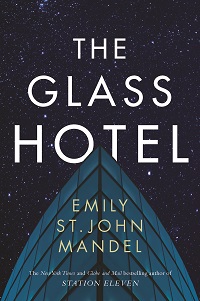
I first heard about Emily St. John Mandel on Tyler Cowen’s podcast. Mandel’s first best seller, Station Eleven, has also seen a resurgence in popularity due to its post-apocalyptic pandemic plot. Mandel, like many “Canadian” writers actually lives in the United States. However, The Glass Hotel deserves to be thought of as CanLit and contains references to numerous Canadian locales including Toronto and Vancouver Island. The book has a dreamscape quality to it. The plot unfolds through the different memories and perspective of the characters. The ending, somewhat surprisingly, has a supernatural twist, which I felt was out of place. Overall though, I thought The Glass Hotel was a well done piece of fiction.
Paul had the impression he often had in the United Kingdom, of just having been subtly insulted in an obscure way that would take too much energy to parse, and as always he couldn’t tell whether the insult was real or just a typically Canadian case of postcolonial insecurity.
Book #2: Trade by Lapham’s Quarterly
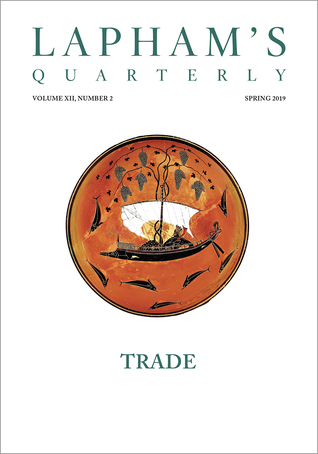
It’s hard to resist buying Lapham’s Quarterly when you see its enticing minimalist cover art and august contributors (Rabelais, Weber, Conrad, Adam Smith, etc). Given my economics background, I thought I would particularly enjoy Trade. Though I can’t point to anything wrong with the issue in particular, I did not find myself as engaged as I usually am with Lapham’s (e.g. Time). There are some beautiful paeans to free trade and the commercial society from the classical era though. Joseph Addison’s article in the Spectator from 1711 is particularly inspired:
There is no Place in the Town which I so much love to frequent as the Royal-Exchange… Factors in the Trading World are what Ambassadors are in the Politick World; they negotiate Affairs, conclude Treaties, and maintain a good Correspondence between those wealthy Societies of Men that are divided from one another by Seas and Oceans, or live on the different Extremities of a Continent. I have often been pleased to hear Disputes adjusted between an Inhabitant of Japan and an Alderman of London, or to see a Subject of the Great Mogul entering into a League with one of the Czar of Muscovy. I am infinitely delighted in mixing with these several Ministers of Commerce, as they are distinguished by their different Walks and different Languages… I am a Dane, Swede, or Frenchman at different times; or rather fancy my self like the old Philosopher, who upon being asked what Countryman he was, replied, That he was a Citizen of the World.
Addison also had an intuitive understanding of comparative advantage:
Nature seems to have taken a particular Care to disseminate her Blessings among the different Regions of the World, with an Eye to this mutual Intercourse and Traffick among Mankind, that the Natives of the several Parts of the Globe might have a kind of Dependance upon one another, and be united together by their common Interest. Almost every Degree produced something peculiar to it. The Food often grows in one Country, and the Sauce in another. The Fruits of Portugal are corrected by the Products of Barbadoes: The Infusion of a China Plant sweetned with the Pith of an Indian Cane. The Philippick Islands give a Flavour to our European Bowls. The single Dress of a Woman of Quality is often the Product of a hundred Climates. The Muff and the Fan come together from the different Ends of the Earth. The Scarf is sent from the Torrid Zone, and the Tippet from beneath the Pole. The Brocade Petticoat rises out of the Mines of Peru, and the Diamond Necklace out of the Bowels of Indostan.
The farther one goes back in history, the more humane trade appears to be. Historians glamorize the Silk Road as a source of cosmopolitanism and sophistication in the medieval ages. But a millennia later, Conrad’s Holroyd in Nostromo is a representative of extractive financial capitalism. This discrepancy between the romantic past and the tawdry present reminds me of an article I read once about how European parents are uncomfortable with their children playing with toy guns but are nonplussed about knights and swords. Despite the politics of the magazine’s eponymous founder, the Trade issue contains a variety of interesting vignettes about commerce, capitalism, and human exchange throughout the ages.
Book #3: The Girl with the Pearl Earring by Tracy Chevalier
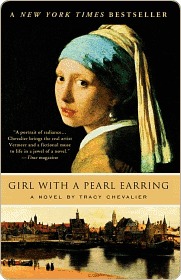
I enjoyed reading Tracy Chevalier’s The Lady and Unicorn last year so I thought I would give another one of her historical novels a try. The Girl with the Pearl Earring is, unsurprisingly, a fictionalized account of the eponymous Vermeer painting. Based on these two books, I suspect Chevalier’s oeuvre has a style that would appeal to female readers in particular. The drama is centred around romantic intrigue constrained by the social mores of the time, and one of the servant girls inevitably ends up pregnant. I’m not sure if I would want to read a third Chevalier novel, but the two I have read have been pleasant experiences.
Book #4: The Fisherman by Chigozi Obioma
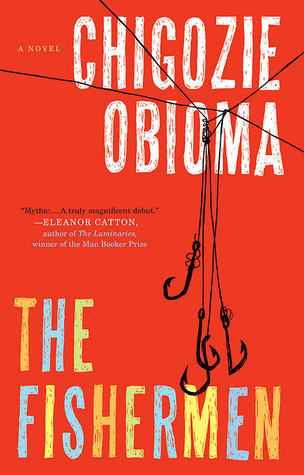
Obioma’s first novel The Fisherman received widespread acclaim when it was published in 2015, with the NYT describing the author as the “heir to Achebe”. The Fisherman is definitely influenced by Achebe and other now classic post-colonial Nigerian authors like Soyinka and Tutuola. Though drawing on many inspirations, The Fisherman feels very much of its own world. The novel is a tragedy in the true Greek sense of the word. Four erstwhile inseparable brothers see their relationship disintegrate into ruin bringing death and misery to the whole family. This was one of the best books I read in 2020 and it receives my strong recommendation.
Book #5: The Radetzky March by Joseph Roth
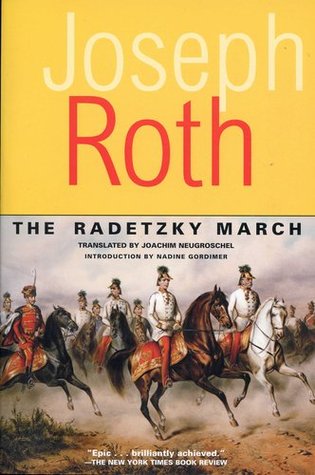
I have been wanting to read Joseph Roth’s The Radetzky March since I finished Simon Winder’s Danubia several years ago. It was described as the defining literary account of the decay and decadence of the Austro-Hungarian Empire. I have always had an interest in the Austria-Hungary, if only because it was a strange combination of liberalism and authoritarianism. One can’t help but find the world of Belle Époque Vienna as told by Zweig or more recently Wes Anderson to be a lost golden age.
Unruffled and sprightly, he got off the footboard with that “elastic step” that the newspapers always ascribed to the old Kaiser and that many elderly government officials had gradually mastered. For in those days people in the monarchy had a very distinctive and now completely forgotten way of leaving trains and carriages, entering restaurants, mounting perrons, stepping into houses, and approaching friend and relatives: it was a way of walking that may have been partly dictated by the snug trousers of the elderly gentlemen and by the rubber straps with which many of them fastened their trousers to their boots.
One of the best quotes from the books actually comes from its introduction and was taken from a contemporary of Roth, Robert Musil: “One can’t be angry with one’s own time without damage to oneself”. Though the book had several flourishes like the one quoted above, I found many segments of prose to be clunky and difficult to parse. The sex scenes, if they can even be called that, would be worthy of the Literary Review’s award for terrible writing. For a reader with an interest in the Austro-Hungarian Empire or Central European literature, Roth’s book will likely be worth the investment. For others, probably best to stick with a synopsis.
Book #6: The Heart of the Matter by Graham Greene
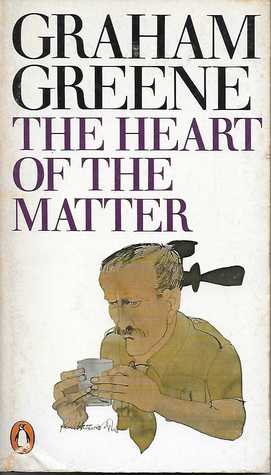
There are some authors that always seem to be out of stock in used book stores. Though I can never find more than one or two copies of Borges or Adichie, Graham Greene’s novels are usually available in the double digits. Greene is less popular today than he was in his prime, but most people are still familiar with his most famous works: Brighton Rock, The Power and the Glory, The Third Man, The End of the Affair, The Quiet American, or Our Man in Havana. A testament to Greene’s popular appeal can be seen in the fact that almost all of books have been turned into films. All of my Graham Greene novels are in Penguin’s mass market paperback format from many decades ago, which also helps to explain their fecundity. The Heart of the Matter is set in a fictional West African country, which is clearly meant to be Sierra Leone or The Gambia as it is a “small” British colony, with one police inspector being able to manage the jurisdiction. Since Greene was stationed in Sierra Leone as an intelligence officer, it is the more likely to be the former.
Heart of the Matter contains all the usual plot devices that could be expected from a Greene novel: Catholicism, espionage, divided loyalties, the imperfection of human nature, and burdensome women. In the novel we follow Major Scobie, whose job it is to ensure the security arrangements of the unnamed West African country. Neutral ships are often docking and he is responsible in ensuring that they are not carrying any contraband to support the German war effort (the book takes place during WWII). Initially incorruptible and disinterested in promotion, Scobie eventually slides into vice and moral decline after his wife leaves to South Africa and he begins an affair with a young widower who was rescued after her ship was torpedoed by a U-boat. In order to keep his indiscretions a secret, Scobie corrupts himself to both a rich Syrian businessman, and more importantly, to God. He believes he is unable to take the sacrament whilst in a state of mortal sin. In the end, his solution to the predicament is a strange one, and (no spoilers) an even more sinful recourse. Overall, I found the book to be an excellent read.
Book #7: Heart of Darkness & Other Stories by Joseph Conrad
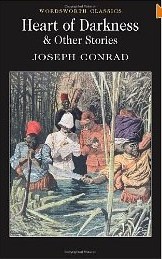
Conrad’s work have seen a resurgence in popularity. In Maya Jasanoff’s recent book, The Dawn Watch, she points out that themes and plot points from works like Nostromo, The Secret Agent, or Lord Jim could have been pulled straight from today’s headlines: terrorism, international capital flows, migration, and technological change. Never having read Conrad before, I decided to start with Heart of Darkness, which continues to be on almost all African literary reading lists, despite receiving its share of criticism. In addition to Heart of Darkness, the book also contained two other novellas: Youth and The End of the Tether. Like most of Conrad’s work, the plot centres on main characters who are merchant mariners. Conrad knew from first hand experience the life of the sea and it is clear his métier was writing about such experiences.
What to the other parties was merely the sale of a ship was to him a momentous event involving a radically new view of existence. He knew that after this ship there would be no other; and the hopes of his youth, the exercise of his abilities, every feeling and achievement of his manhood, had been indissolubly connected with ships. He had served ships; he had owned ships; and even the years of his actual retirement from the sea had been made bearable by the idea that he had only to stretch out his hand full of money to get a ship. He had been at liberty to feel as though he were the owner of all the ships in the world. The selling of this one was weary work; but when she passed from him at last, when he signed the last receipt, it was as though all the ships had gone out of the world together, leaving him on the shore of inaccessible oceans with seven hundred pounds in his hands.
He had been his own employer too long. The only credential he could produce was the testimony of his whole life. What better recommendation could anyone require? But vaguely he felt that the unique document would be looked upon as an archaic curiosity of the Eastern waters, a screed traced in obsolete words – in a half-forgotten language.
Heart of Darkness has been endlessly analysed so I am unlikely to be add anything that hasn’t already been said. Of the three novellas, I found this one to be most easily readable. While the portrayal of the Congolese is hardly flattering, the story puts paid to any idea of a Belgian mission civilisatrice.
They grabbed what they could get for the sake of what was to be got. It was just robbery with violence, aggravated murder on a great scale, and men going at it blind – as is very proper for those who tackle a darkness. The conquest of the earth, which mostly means the taking it away from those who have a different complexion or slightly flatter noses than ourselves, is not a pretty thing when you look into it too much.
The End of the Tether is the most poignant of the three stories, with an ageing captain needing to make one last voyage to be able to provide enough money for his daughter. Merchant shipping in the 21st century is seen as an unromantic containerized process, that while a bit boring, has enabled globalization through remarkably cheap shipping costs. But even at the turn of the century, the relentless forces of capitalist efficiency had turned shipping into a margins business.
In a world that pared down the profits to an irreducible minimum, in a world that was able to count its disengaged tonnage twice over every day, and in which lean charters were snapped up by cable three months in advance, there were no chances of fortune for an individual wandering haphazard with a little barque - hardly indeed any room to exist.
Though I enjoyed Conrad’s novellas from a historical perspective, I found them difficult to read. There must be something about late 19th century prose that is difficult for a modern reader, or at least myself, to penetrate. These will (probably) be the last works of fiction I read by Conrad. Though I am curious to learn more about the biographical details of the man himself.
Book #8: Kim by Rudyard Kipling

Last year I read Kipling’s collected works of Indian Tales. While a few of the “ghost” or “horror” stories were fun reads, the work was more interesting from a socio-historical perspective. Kipling was born an Anglo-Indian and was considered the Bard of Empire. His literary works archive the ebullient spirit of Pax Britannica. But his life was filled with tragedies from temporary financial ruin to the loss of his only son in the First World War and first daughter to pneumonia. It was Kipling who noted after the debacle of the Boer War that the British Empire was liable for collapse within a generation if the “will” to fight for it became weakened. In Alan Sandison’s introduction to book, he also notes that Kipling held a deeply pessimistic, and I would argue conservative (in the sense of political philosophy), view of the world:
Kipling’s view of life is a deeply pessimistic one. Not only is man, as he once put it, at war with his surroundings in a world that does not care, but that world itself is without intrinsic order: chaos and anarchy constitute its true moral reality. The result is that for him (as for his contemporary Joseph Conrad) existence becomes a perpetual struggle between the individual self’s battle to sustain its integrity, and a deeply hostile universe where man has no natural (or supernatural) ally. The best that can be done is to encourage anything that offers to impose pattern and order upon this lawless nature, however artificial such structures may innately be.
The eponymous protagonist of Kim is an orphan living in Lahore where he survives by his wits. Kim seems unaware of the significance of either his poverty of his “ethnic” heritage, being an orphan of an Irish soldier and mother. Rather than secretly discovering that he is royal blood as in a fairytale, Kim’s awakening is a racial one when he realizes that he is a sahib. Before embracing his destiny as a guardian of British hegemony, Kim carries clandestine messages for an Afghan horse trader name Mahbub Ali who is secretly an agent with the British Raj and part of the Great Game.
Though known as spy novel, (apparently the former head of the CIA Allen Dulles found the book so masterly that he always kept a copy at this bedside), most of the plot revolves around Kim and his friend the Teshoo Lama searching for a sacred river. There is a surprising amount of Buddhist theology to be found in the book. I found Kim’s travels with the Lama to be boring and when combined with the infantilizing descriptions of Asians, even more tedious. Even for its era the plot seems full of tropes and one-dimensional characters. The Russians and French contestants in the Great Game are fools, the British are cunning and ethical, the Indians are all loyal, and (despite the statistical impossibility) make claims to having fought with the British during the mutiny. Overall I’d rank Kim as my worst read in 2021 so far.
